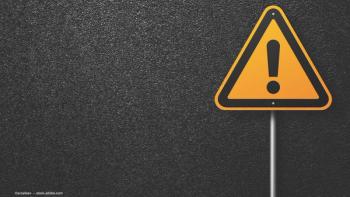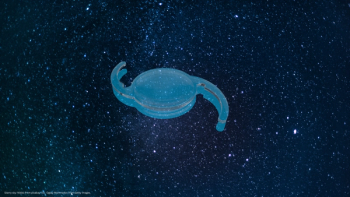
The 'Add-On' IOL approach for managing challenging cases in cataract surgery
Surgeons can now consider new treatment possibilities for patients that otherwise would have had limited options
Although nowadays cataract extraction with IOL implantation is a highly successful refractive procedure; some residual pseudophakic refractive errors are still inevitable. Also, surgeons are often faced with difficult cases for which the cataract procedure is not straightforward. With the development of advanced IOL designs and surgical methods, surgeons can now consider new treatment possibilities for their patients that otherwise would have had limited options. In this article, two surgeons share challenging cataract cases and explain why they chose the 'Add-On' IOL implantation procedure (HumanOptics AG, Erlangen, Germany) to achieve successful outcomes.
The 'Add-On' technology
Treatment of pseudophakic high myopia with the Secura-sPB IOL
"An 88 year old male in poor general health came to my clinic troubled with increased difficulty reading and visual hallucinations," explained Dr Herbert. "He was highly myopic and had undergone unilateral left cataract surgery nine years previously in another unit. At that time it was decided to leave him myopic. He had subsequently undergone YAG capsulotomy in this eye and had previously been taking Tamsulosin.
"Preoperative best corrected visual acuity was 6/24 (20/80) wearing –14.50/–0.75 × 125 in the right eye; and 6/24 (20/80) with –15.50/–1.50 × 160 in the left pseudophakic eye.
"On examination there was 2+ nuclear sclerosis cataract in the right eye and some mild myopic degenerative changes in both fundi. We discussed the various options. Image minification and loss of peripheral vision from his highly myopic glasses accentuated his difficulties and he did not want to consider wearing contact lenses. Lens exchange in the left eye would have presented a number of challenges as he was unable to lie down for extended periods and disturbing the vitreous would have increased the risk of retinal detachment in this myopic eye. We agreed on an add-on lens implant to correct the left myopia, followed by right cataract surgery with monofocal IOL implantation. This offered a short and minimally invasive procedure for the left eye and the chance to confirm the refractive outcome before undertaking conventional cataract surgery in the right eye."
According to Dr Herbert, HumanOptics offered an extremely helpful lens power calculation service based on the data provided (Ks, axial length, manifest refraction and details of the previous lens implant). "We aimed for –2.20 D in spherical equivalent to allow for refractive surprises as the strength of lens required was outside the normal range and moderate errors either way would still provide an acceptable outcome. The lens Secura-sPB was calculated as –18.00 D and this was custom made (plus a spare in case of problems).
"Insertion was performed through a clear corneal incision on axis under subtenon's anaesthesia. Lens folding required some care on account of the thin lens profile, but otherwise insertion was straightforward. Two weeks later phacoemulsification was performed on the right eye.
"The patient was delighted with the results saying it was the first time in 80 years he had been able to get up in the morning and see without putting on glasses. Final acuity was 6/12 (20/40) right eye with +0.50 D and 6/18 (20/60) left eye with +1.25–1.00 × 55. Reading acuity was N5 (J6) with a +2.50 add. His visual hallucinations were resolved with the improvement in his acuity."
Newsletter
Get the essential updates shaping the future of pharma manufacturing and compliance—subscribe today to Pharmaceutical Technology and never miss a breakthrough.




























